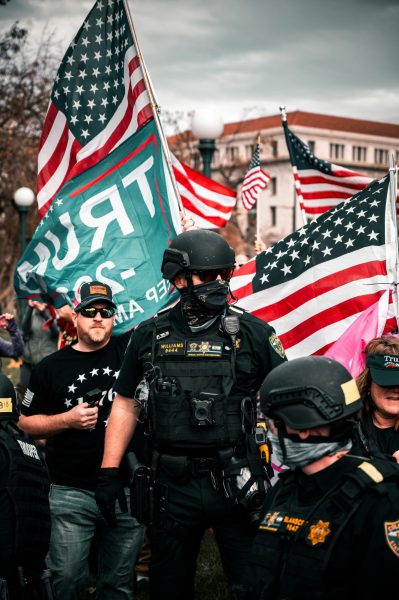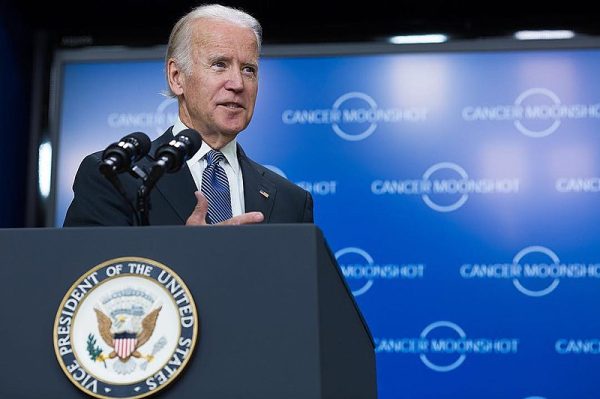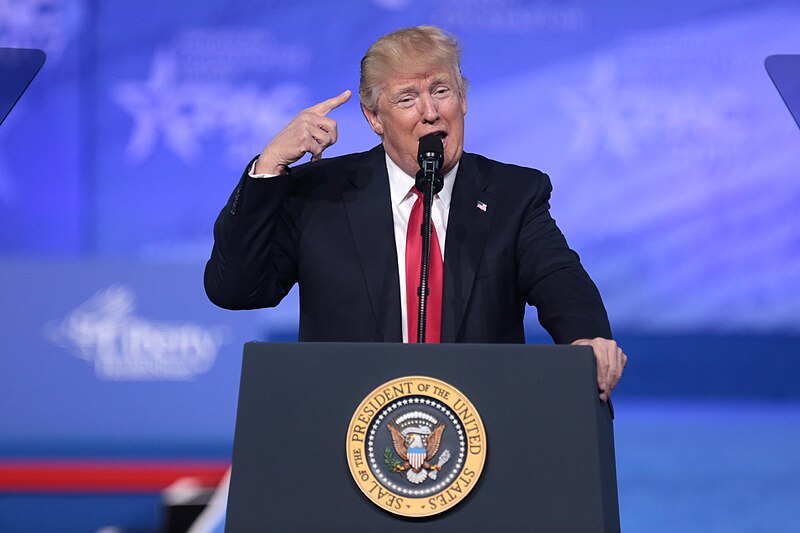Your past should not define you, or so they say. When do clichés apply, and when do they not? What if the safety and economic prosperity of your nation are at stake?
Take a look at France in the 1800’s. After the tumultuous French Revolution, France was left with great instability and yearned for leadership. Napoleon rose to power through a promise to revive the French economy and increase citizen’s prosperity, which would fill the power vacuum. However, at heart, Napoleon was a dictator and an oppressor. He used his status to imperialize portions of Europe and Africa, and committed humanitarian sins to consolidate his power.
But at the end of the day, the pressing question is, what makes a leader qualified? Contemporary America has been struggling to find this answer.
History of Former President Trump’s Criminal Charges
America’s political scene has been deeply divided, and can be summed up as a constant tug-of-war between Republicans and Democrats. But in the last decade, we can observe the increasing tensions because it has incited violence across America.
Since former President Trump took office in 2016, his qualifications have been a topic of heated discussion for Democrats. His status as a business tycoon has undermined his political efforts, as election candidates have tried to invalidate his campaign by exposing his lack of experience in the field and questioning his legitimacy.
He has amassed over 90 criminal charges due to his involvement in tax fraud, election interference, and as of January 6th 2020, he’s been accused of treason.
January 6th marked the day of the White House insurrection led by MAGA (Make America Great Again) extremists – a name that Trump’s fans call themselves. They stole confidential government documents, used verbal profanity to disgrace respected Democratic Congressional leaders, and threatened to hang former Vice President Mike Pence – just to name a few of their crimes. Thorough investigation led to the speculation of “internal intervention” by Trump.
FBI investigations revealed that Trump refused to call off the mob, despite his statement that his calls “would have been very well received.” He also justified his lack of action by saying, “the people that went to Washington that day, in my opinion, they went because they thought the election was rigged.” Trump implied that the actions of his supporters would excuse him from the treasonous acts. However, no one is above the law, and since then, it has incited more rage between MAGA supporters and non-MAGA supporters. The Capitol attack drew more attention to Trump’s legal track record. Several investigations have led to more criminalizing evidence against him . In New York alone, he’s being charged of tax fraud, sexual assault, and bribery.

Democrats have been aiming to defuse Trump’s power for years. Since Trump entered office, bipartisanship (the agreement between the primary two political parties in power) “scores in the House fell to their lowest levels in the nine-year history of the Bipartisan Index.” At this point, the conviction of Trump isn’t just an act of justice, it’s perceived as a personal attack on the Republican House.
Trump’s trial has moved up as a federal case. However, if he loses in court, what does that entail for the country? The Constitution contains certain ambiguity about who can run for president. Amongst the requirements, the candidate must be a natural-born citizen, must be at least 35 years old, and have been a resident of the U.S. for at least 14 years. But the Founding Fathers overlooked the possibility of a criminal running for president.
This isn’t the first time America has seen a candidate with criminal charges. Eugene V. Debs ran under the Socialist Party five times from the early 1900s to the 1920s. During World War I, Debs ran for president despite being imprisoned for disobeying the Espionage Act of 1917, in which he outwardly opposed the war. The president at the time, Franklin D. Roosevelt insulted Debs for not aligning with “American values,” or in other words, Roosevelt’s war effort. FDR was trying to convince America to be in favor of the war, as a country divided during a time of war will cause internal turmoil.
The ethicality of Debs’ confinement compared to Trump’s indictment are on separate spectrums. While Debs was convicted because of his unwillingness to support the war, Trump has been charged with committing crimes that have induced great social upheaval. His sphere of influence has brought mayhem to American society, which is something to be considered gravely.
Even if the Supreme Court rules Trump guilty in his case, there’s no law that stops Trump from running. On top of that, his access to money and resources is seemingly endless. Before Trump left, he made sure to elect judges that complied with his ethics, which will introduce bias in the trial. It’s not a Republican House anymore, it’s Trump’s House.
How will foreign countries look at America with a criminal elected as its leading figure? It would certainly harm American credibility from an international perspective. Trump’s ascension to presidency won’t just have political implications. It has social implications, too. American society will encounter further division on an unprecedented scale.
International Affairs
National safety, lawmaking, international affairs, and national peace are at stake. The Russian-Ukrainian issue and the Israel/Hamas involvement has further polarized America. Many say Biden has a laissez-faire approach, and that he’s allowing chaos to fester internationally. The most pressing issue as of 2024 is the Israeli alliance that Biden formed. There’s no consensus on whether he’s taking the right approach, which has caused demonstrations all across America. People who are not strongly associated with politics view the demonstrations negatively, and associate the disorder as Biden being a poor leader. MAGA supporters want to see Trump take office and end the war, no strings attached. Non-MAGA citizens don’t want Trump to encourage extreme-leftism or have a repeat of the January 6th insurrection. A significant number of Americans choose not to vote because they don’t want to pick their poison.
A Divided America
Trump and Biden have been neck and neck in the political race since 2020. Trump accused Biden of promoting voter fraud throughout multiple states. For instance, he urged the state of Wisconsin to recount their ballots to expose voter fraud, but the recount showed a nearly identical count. The investigation concluded that no voter fraud was committed and it only served to delay Biden’s transition into office.

The Democratic Party electing Biden was a controversial decision, given worries about his age with many voters. It has made Biden a controversial candidate for the next presidential election in 2024. But the truth is, the Democrats have no other candidate that is as experienced, popular, or credible as Biden.
State-by-state projections show nearly a 50/50 split between Biden and Trump. Evidently, the election will come down to the swing states – states that have similar sized voting bases for both parties, and are crucial for determining presidential results. The swing states this year are projected to be Pennsylvania (19 electoral votes) – Biden’s home state – Michigan (15), Nevada (6), Arizona (11), Georgia (16), and Wisconsin (10).
Only time will reveal the true trajectory of the election. It’s not just about red or blue, even though it so often appears that way; it’s not just about who wins and who loses. It’s about the ethics, the American future, the global economy, and international stability that’s on the line.
Only time will reveal the true trajectory of the election. It’s not just about red or blue, even though it so often appears that way; it’s not just about who wins and who loses. It’s about the ethics, the American future, the global economy, and international stability that’s on the line.

